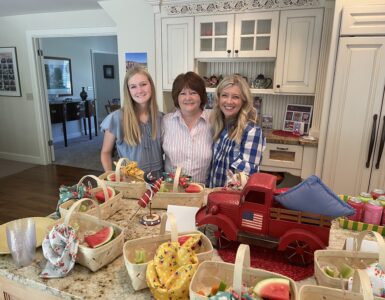Some days, you just feel touched out.
If you’ve ever flinched at the sound of your name being called for the hundredth time in a day, or instinctively pulled away from a hug you’d normally welcome, you might be experiencing something many caregivers know all too well: being “touched out.”
This isn’t about a lack of love or affection. It’s about emotional and physical depletion. Therapist Kristin Hodson shared a compassionate and practical guide to recognizing this state and, more importantly, replenishing yourself when you’re running on empty.
What Does It Mean to Be “Touched Out?”
Being touched out is a form of sensory and emotional overload. It often happens to women, mothers, and caregivers who are constantly giving—physically, emotionally, and mentally. “If I hear my name one more time… or someone even just thinks about giving me a hug, I’m going to lose my mind,” Kristin described. This feeling is not only common—it’s normal. But it can also be isolating, especially when guilt creeps in. You love your people, but you’re exhausted. And that’s okay.
- Reframe Touch: Seek What Nourishes You
Not all touch is created equal. When you’re touched out, it’s not that you don’t want to be touched—it’s that you need the right kind of touch. Kristin encouraged caregivers to identify and ask for the kind of physical connection that feels restorative rather than draining. “Sometimes we just need nourishing touch where we’re not giving… a foot rub, a neck rub, whatever,” she explained. This might mean asking for a massage, a long hug where you’re the one being held, or even playful moments like “spa time” with your kids. The key is to receive, not give.
- Share the Load: Increase Your Partnering
One of the biggest contributors to burnout is the feeling of doing everything alone. Kristin called this a “smoke signal” that it’s time to reassess how responsibilities are shared. “What needs to get done? What’s on the table? And how can we re-divvy it up?” she suggested.
Sometimes, it’s as simple as asking your partner to step in more actively. One mom shared how she finally said, “Can you jump in so I don’t have to say, ‘Ask your dad’?” Her partner’s response? “Oh yeah, I was just waiting to see where I was needed.” This kind of communication can shift the dynamic and bring much-needed balance.
- Set Boundaries That Build Connection
Boundaries aren’t about shutting people out—they’re about protecting your energy and modeling healthy behavior. Kristin reframed boundaries as bridges to better relationships. “They don’t have to be rejection. When we are doing a boundary, we can stay connected,” she explained.
This might mean closing the bathroom door, asking your kids to knock before entering, or simply saying, “I need a minute.” Teaching children to ask before touching your body also models consent and autonomy—valuable lessons for them and vital space for you.
- Replenish with Intentional “Me Time”
Scrolling through your phone might feel like a break, but it’s not truly restorative. Kristin is clear: “Scrolling is not replenishing.”
Instead, she recommended carving out 10 intentional minutes a day for something that genuinely fills your cup. That could be reading a book, lying in the sun, journaling, or simply sitting in silence. “We can’t pour from an empty cup.” This isn’t a luxury—it’s a necessity, and it shouldn’t be reserved for special occasions. Regular, intentional self-care is a practice that sustains you through the demands of caregiving.
Normalize the Need for Replenishment
Feeling touched out doesn’t mean you’re failing—it means you’re human. By recognizing the signs, communicating your needs, and prioritizing your well-being, you can move from burnout to balance.
You deserve care, too, and when you take time to replenish, you’re not only helping yourself—you’re modeling resilience and self-respect for everyone around you.
For more advice from Kristin, visit thehealinggroup.com or follow her on Instagram at @thehealinggroup.















Add comment